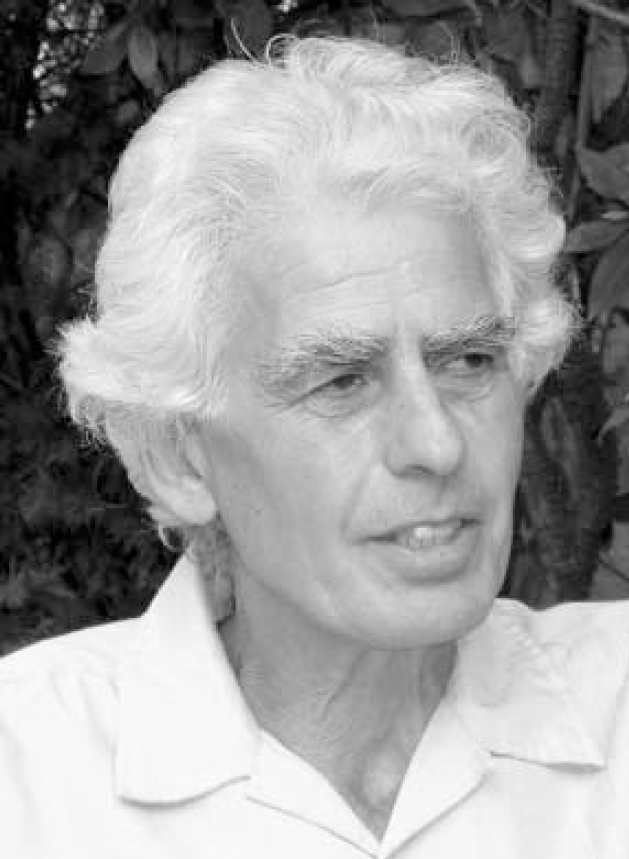
Julian Leff is Emeritus Professor at the Institute of Psychiatry, London. He trained at University College Hospital (UCH) and the Maudsley. His special interests are working with families, evaluating psychosocial interventions, ethnic minorities and psychosis.
If you were not a psychiatrist, what would you do?
When I was a lad I wanted to be a marine biologist. I still fancy that occupation.
What has been the greatest impact of your profession on you personally?
The development of my skills in family work gave me a greater understanding of my own family of origin. It also allowed me to utilise the interest in drama, which I had discovered at medical school.
Do you feel stigmatised by your profession?
Not at all. I have often met strangers at social gatherings who expect me to be able to read their mind, but I quickly learned to turn it into a joke.
What are your interests outside of work?
I have played the piano from the age of five and have always enjoyed playing together with friends. In the past 4 years, I have been attending a piano accompaniment class and my standard has risen appreciably to the level where I perform with chamber groups in churches. I have also taken up jewellery making and silversmithing in the past year, and find it both challenging and greatly enjoyable. I swim in the ponds of Hampstead Heath daily through the summer and play squash with my sons the year round.
Who was your most influential trainer, and why?
Undoubtedly Sir Aubrey Lewis. His scholarship was unrivalled, and I appreciated his inquisitorial style even when at the sharp end of it. I used to travel into the Maudsley on the same bus as he did, and soon came to realise that he was a warm and generous person in social interchanges, qualities that were obscured by his professional persona.
What job gave you the most useful training experience?
It’s hard to choose between many of my training posts. The first was with Felix Post, from whom I learned a phenomenological approach that has been the basis of my practice and research ever since. But I must mention Kraupl-Taylor, whose unique style of management and manipulative use of interpretations was an eye-opener.
Which book has influenced you most?
The Brothers Karamazov. I read Dostoevsky in my teens and learned much more about disturbed personalities, human emotions and motivations than from any psychiatric text I have read since.
What research publication has had the greatest influence on your work?
George Brown’s publications on life events and expressed emotion.
What part of your work gives you the most satisfaction?
Teaching other professionals how to work with families who are caring for someone with a severe psychiatric disorder. But I enjoy equally presenting my research in the form of a story to an audience.
What do you least enjoy?
Administration.
What is the most promising opportunity facing the profession?
The application of psychosocial interventions across the whole range of psychiatric disorders, and the opening up of this approach to physical diseases. (But I would say that, wouldn’t I?)
What is the greatest threat?
That the excitement over biological technology eclipses the importance of human relationships, which are at the heart of good psychiatric practice.
What single change would substantially improve quality of care?
Listening to and implementing what patients and their carers want.
What conflict of interest do you encounter most often?
When I review a manuscript by someone I know well, and for whom I have either positive or negative feelings.
Do you think psychiatry is brainless or mindless?
Predominantly mindless at the moment, but there are signs of a more balanced approach emerging, at least on this side of the Atlantic. I do not think we will ever again be able to sustain a brainless psychiatry.
How would you entice more medical students into the profession?
From their first day on the clinical course I would introduce them to the importance of their relationship with the patients, using role-play extensively. Early on I would give them the opportunity to take on patients under supervision for psychotherapy. This was my first experience of psychiatry as a medical student at UCH, and it got me hooked because for the first time as an undergraduate I was valued as a clinician.
What is the most important advice you could offer to a new trainee?
Pick a subject that really interests you and read around it extensively - particularly, but not exclusively, the research literature.
What are the main ethical problems that psychiatrists will face in the future?
The increasing financial dominance of meetings and publications by the pharmaceutical industry.
What single change to mental health legislation would you like to see?
An act that allows patients to earn a reasonable wage without losing their disability benefits.
What is the future for psychotherapy in psychiatry training and practice?
I am assuming that psychotherapy is a broad term that includes cognitive and behavioural therapies. It is obviously essential for all psychiatrists to have a working ability in psychotherapy, although which particular type should be a matter of personal choice.
What single area of psychiatric research should be given priority?
The integration of psychosocial and biological enquiries.
What single area of psychiatric practice is most in need of development?
Including the family in any consideration of the patient’s problems, needs and strengths.





eLetters
No eLetters have been published for this article.